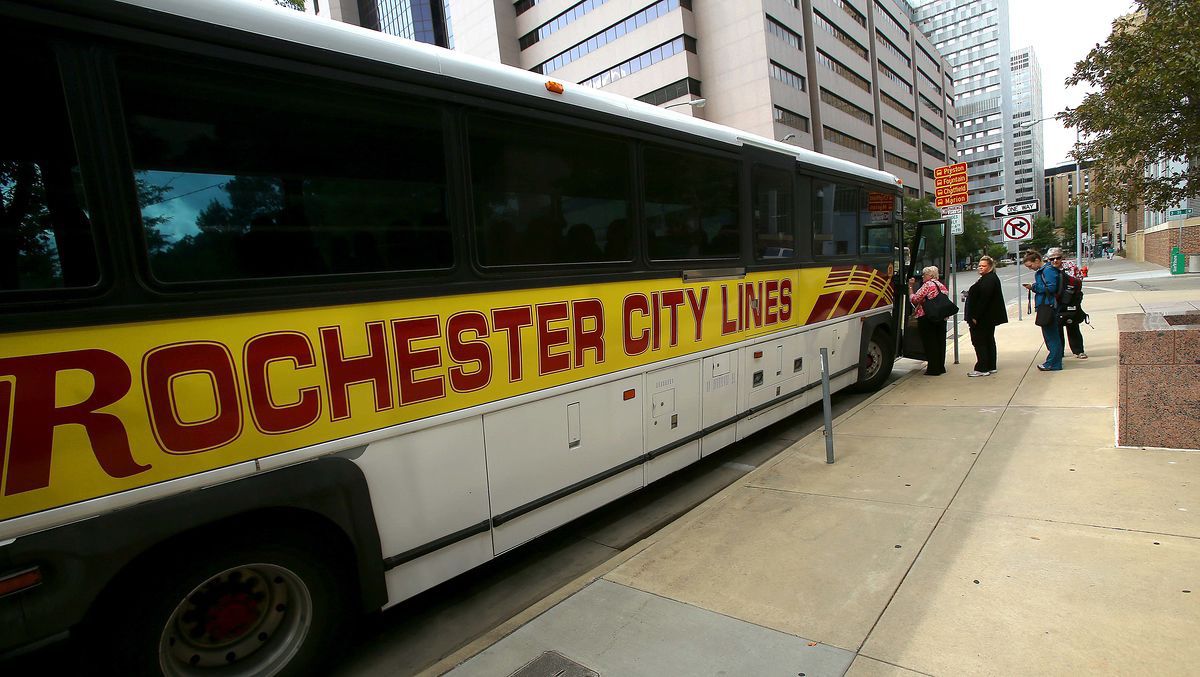ROCHESTER, Minn. – A 5-year-old legal battle between Rochester City Lines (RCL) and the city over its public-transit bidding process recently turned in favor of the private bus company.

The Minnesota Court of Appeals ruled last month that there was an “impermissible appearance of bias” in the City of Rochester’s 2016 process of seeking bids from companies to operate its public-transit system.
That means the bidding process will have to be repeated pending an appeal of the ruling by the city to the Minnesota Supreme Court.
“We’re just seeking justice,” said Dan Holter, general manager of RCL. “The methods they used throughout the process have been unjust. We tried to tell them what they were doing wrong, but they wouldn’t listen to us.”
The legal wrangling between RCL and Rochester began in 2012 when the city awarded a contract to national giant First Transit to provide bus service. Prior to that, the family owned RCL had provided transit service in Rochester for 46 years.
RCL sued the city over what it contended was a “biased” bidding process, and the case recently was taken to trial before a Minnesota district court after five years of appeals.
The current legal squabble that led to a May 15 appeals court ruling involves Rochester’s decision late last year to award another four-year contract to First Transit. RCL also challenged that bidding process as biased.
The current court fight began when Rochester issued a request for proposals (RFP) in June 2016 to operate its public-transit service from 2017 to 2021.
RCL, which submitted a bid to provide the service, issued a pre-bid protest to the city claiming the bidding process was biased because five of the eight members of the RFP evaluation committee also had been members of the 2012 RFP evaluation committee.
The bus company had claimed in its earlier suit that the 2012 committee was “tainted by participation in an evaluation process that the evidence shows relied upon a collusive agreement between the City and First Transit to rig the proposal evaluation process, with respect to interviews and scoring.”
In its 2016 pre-bid protest, RCL argued that the city’s inclusion of five of these “tainted” individuals on the 2016 evaluation committee undermined the fairness and impartiality of that committee and rendered the 2016 RFP process “inherently unfair.” But the city moderator overseeing the RFP process rejected RCL’s protest in August. The city then awarded the four-year contract to First Transit in November.
RCL petitioned the Minnesota Court of Appeals seeking review of the moderator’s denial of its pre-bid protest, and on May 15 the court agreed with RCL and reversed the moderator’s rejection of the protest.
The appeals court said in its ruling that although there was no proof of actual bias on the part of the RFP evaluation committee, there was an “impermissible appearance of bias” resulting from the inclusion of the five holdover members on the 2016 committee.
“We reverse the moderator’s denial of RCL’s pre-bid process and hold that the 2016 RFP process and any contract awarded through that process are invalid,” the court ruled.
The Rochester City Council has voted unanimously to ask the Minnesota Supreme Court to review the appeals court ruling.
Meanwhile, the original 2012 lawsuit by RCL was the subject of a trial that began in late May.
The basis of that suit was that Rochester’s RFP process was unfair and biased in favor of First Transit and that the city ignored a conflict of interest.
Holter said that two of his own managers who represented RCL during the interview process had — unbeknownst to him — applied for jobs with First Transit. He said the city was aware of the job offers but did not disclose the information to him.
RCL also filed an action with the Federal Transit Administration, maintaining that the city violated federal regulations requiring a government entity using federal transit funds to compete with a private carrier to pay just compensation to the affected business.
The FTA rejected the claim and the lawsuit against Rochester bounced around the court system for five years before the Minnesota Supreme Court ruled that there was sufficient cause to order the case to trial in district court.
That trial was held in late May but the judge has yet to rule. Steven Diaz, a Washington, D.C., lawyer who has represents RCL, said the court could either rule in favor of the city or uphold some or all of RCL’s claims.
If RCL prevails, Diaz said the company would ask for monetary damages based on its loss of business. He said there also is a chance that the FTA, which provided federal funding to Rochester to subsidize its public-transit system, could request that the city reimburse the government.
Diaz also said there is a chance that First Transit could suffer “disbarment,” meaning it would be ineligible to bid on future public-transit contracts.




